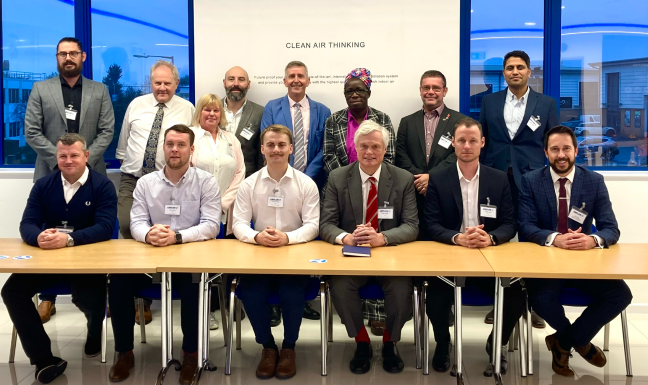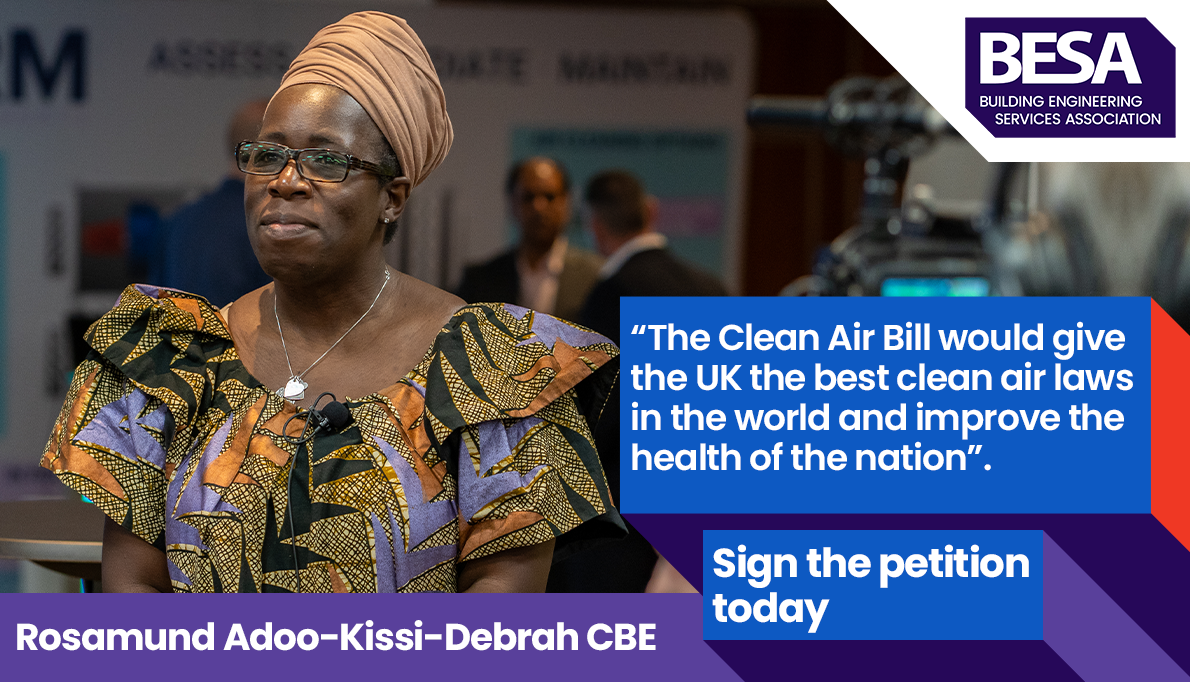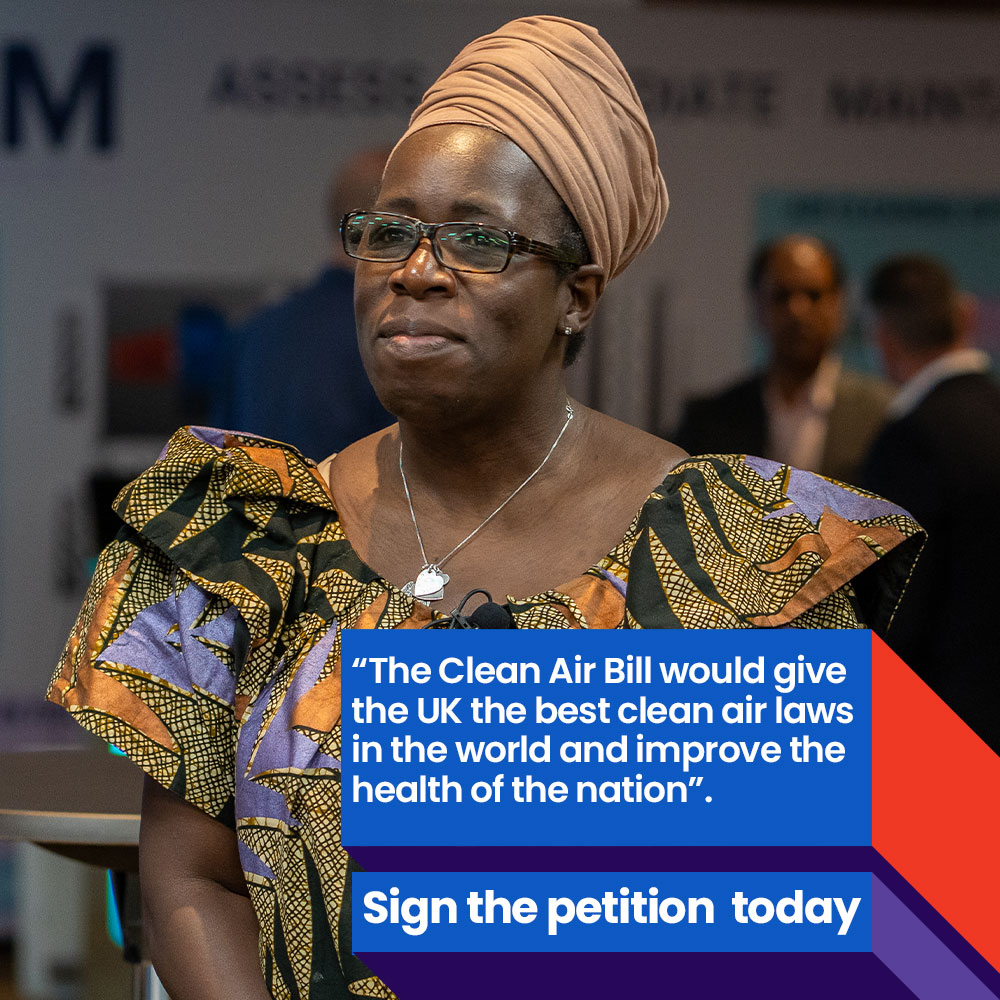The first ever World Ventilation Day highlighted the growing public health crisis linked to poorly ventilated buildings.
Campaigners, scientists, academics, and engineers led a global social media campaign and ran a series of international events demonstrating how good ventilation reduces exposure to deadly viruses and pollutants.
World Health Organisation (WHO) child health advocate Rosamund Adoo Kissi-Debrah told an event organised by the Building Engineering Services Association (BESA) that children will continue to die unless governments and the ventilation industry work together to address poor indoor air quality (IAQ).
“The NHS will not be able to reduce its waiting lists until we clean up our air,” she said. “It is also much easier to control the indoor air than the outdoor – so tackling IAQ is a great way to give people back power over their own environment and save lives.”
The WHO has established that 3.8 million premature deaths worldwide are linked to poor indoor air out of a total of 8.7 million from pollution.
“We have to be clear about this…bad IAQ leads directly to deaths,” said Kissi-Debrah, who also warned that there was a new ‘ghost generation’ of children who, since the pandemic, have stayed at home and are at particular risk.
Damp and mould
World Ventilation Day (#WorldVentil8Day) also took place the day after Rochdale Coroner’s Court ruled that the death of two-year-old Awaab Ishak was directly linked to his exposure to damp and mould in a poorly ventilated flat.
“Poor ventilation is a public health crisis, and I will be raising it directly with the Prime Minister,” said Kissi-Debrah, who has been campaigning for cleaner air since the death of her daughter Ella from a severe asthma attack linked to air pollution in 2013 and is supported by London Mayor Sadiq Khan.
Several speakers at the BESA event, hosted by Airflow Developments in High Wycombe, said the importance of this issue should also inspire more people to take up careers in ventilation and IAQ.
“We must remind people working in building ventilation that what they do is really important and has a direct impact on the health of the public,” said George Friend, chair of the BESA Ventilation Group. “When people go to work in the morning, they want to feel that they are making a difference…they want to deliver some value. Our industry does that.”
However, delivering that message to a wider audience should be a priority, according to several speakers who said young people would only be inspired to take up careers in ventilation if the industry shocked people into action, and explained how the problem could be solved.
“World Ventilation Day will only be successful if we both highlight the issues and show how they can be tackled,” said BESA technical director Graeme Fox. “Many of the solutions are relatively easy and cost-effective to implement – and as well as cleaning up the indoor air can improve the overall performance of buildings to help us achieve our net zero goals.”
www.worldventil8day.com



